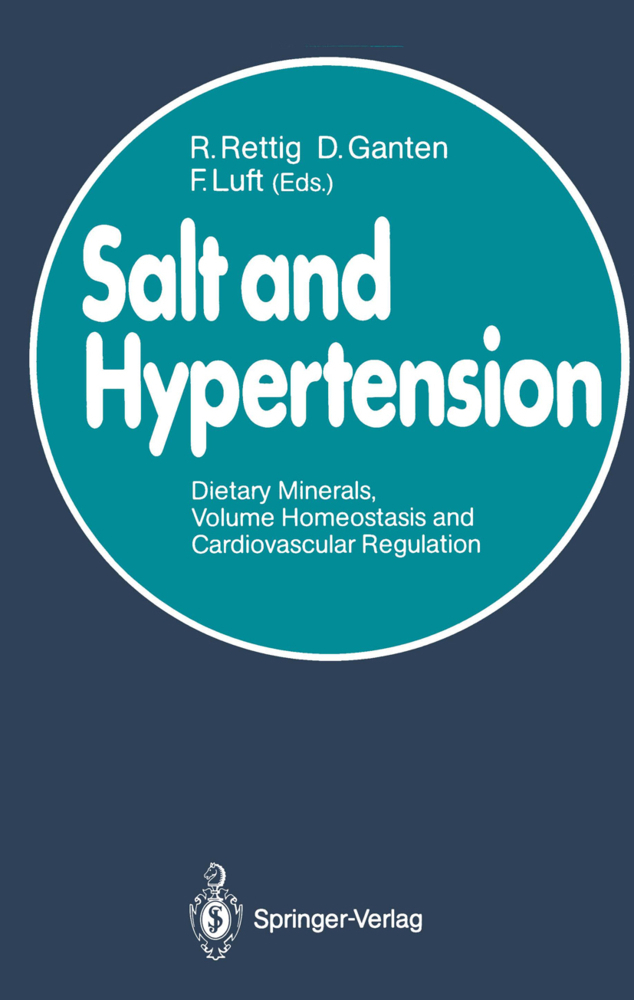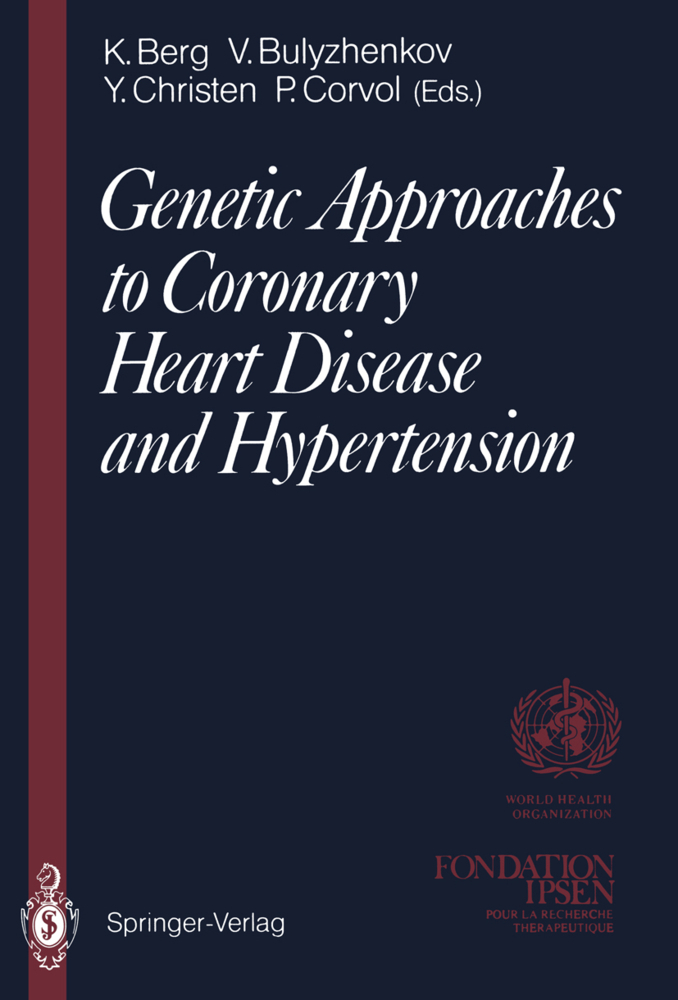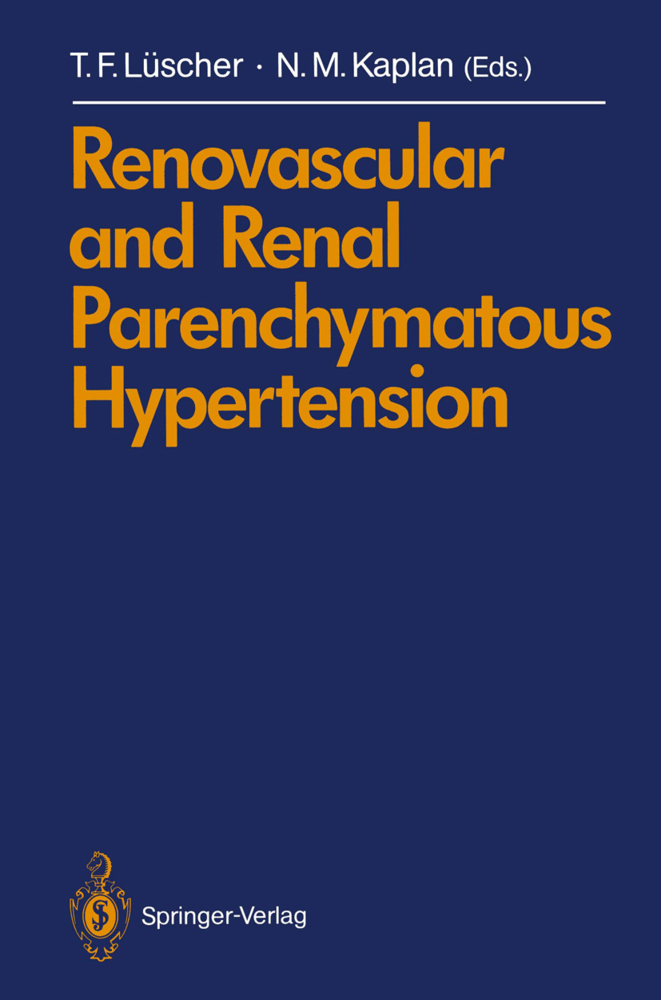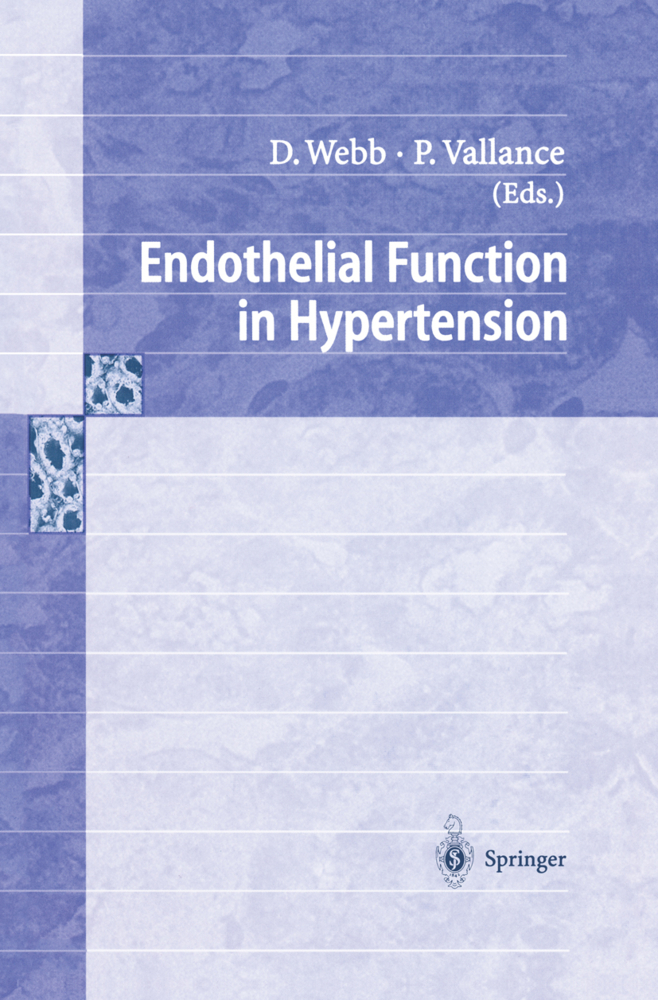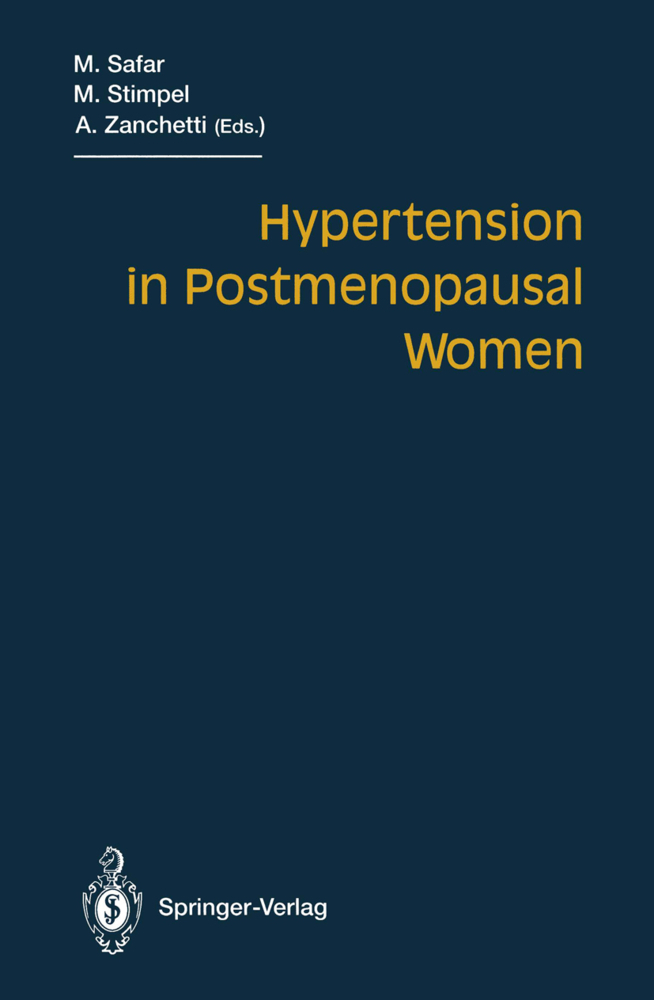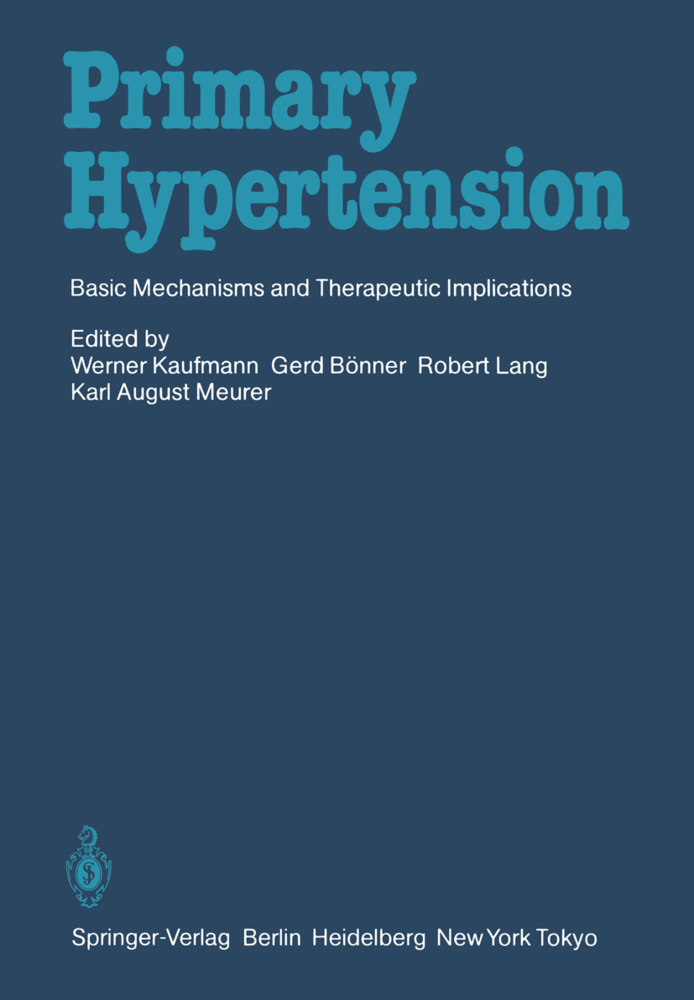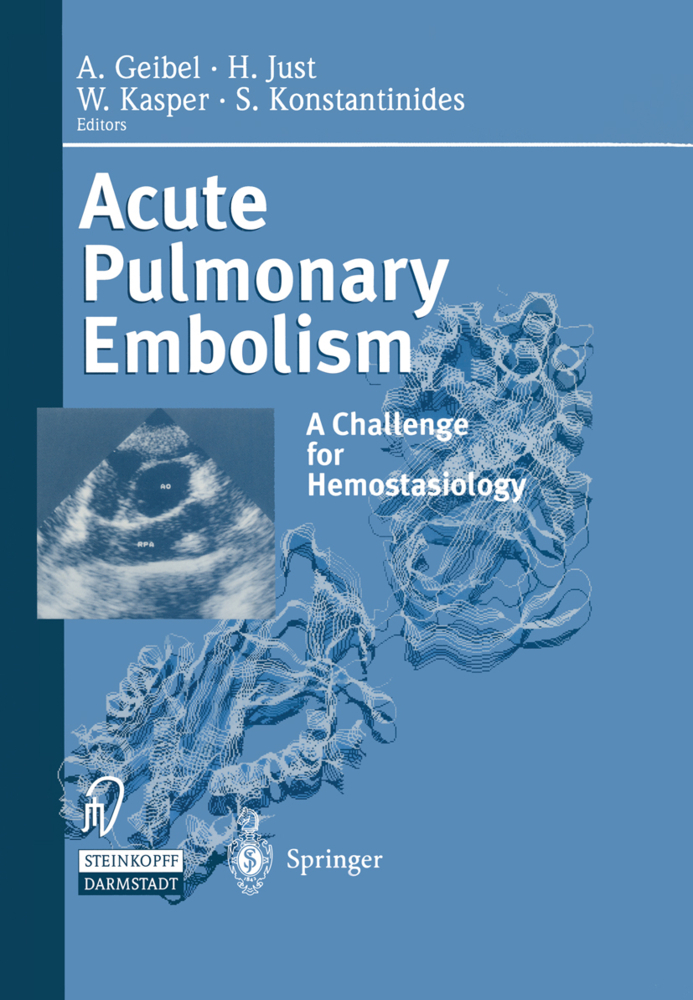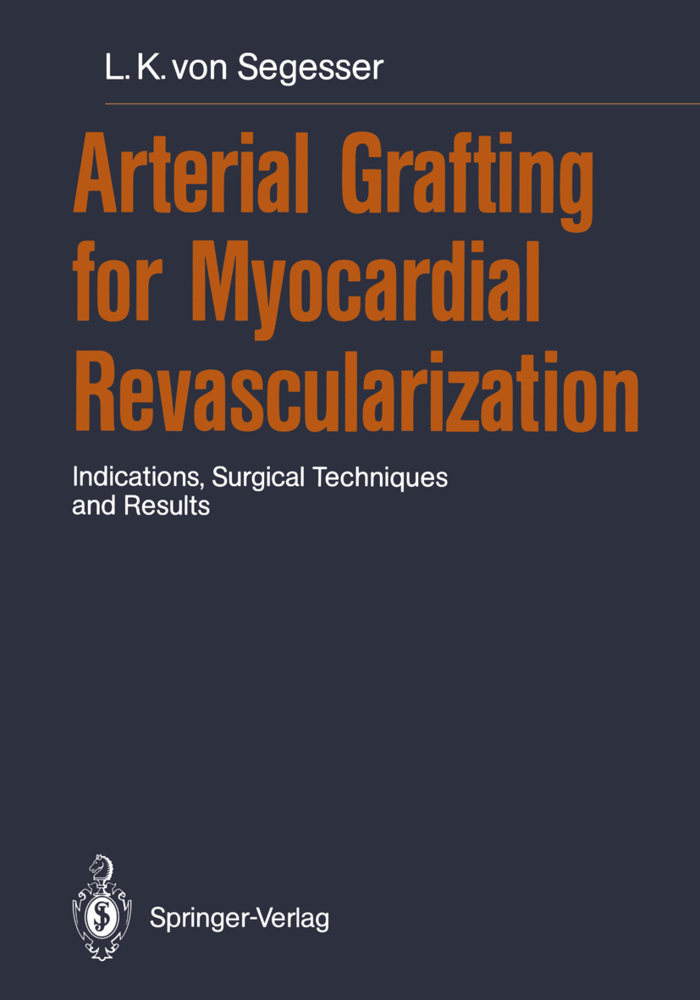Salt and Hypertension
Dietary Minerals, Volume Homeostasis and Cardiovascular Regulation
Salt and Hypertension
Dietary Minerals, Volume Homeostasis and Cardiovascular Regulation
Controversy regarding the wisdom of a high salt intake has been with us for 5000 years. In the Nei Ching, the oldest of the extant medical writings, the Yellow Emperor observed, "Hence, if too much salt is in the food, the pulse hardens, tears make their appearance, and the complexion changes". At about the same period in history, Job asked the question, "Can that which is unsavory be eaten without salt?" It is not apparent whether or not the Almighty provided a clear answer. The connection between dietary salt intake and hypertension was appreciated following the observations of AMBARD, BEAUJARD, VOLLHARD, ALLEN, and others. However, DAHL emphasized this relationship, as demonstrated by his epidemiological observations, his studies in human subjects, and his development of a genetically mediated form of salt-sensitive hypertension in rats. DAHL and his followers argued that hypertension was a disease of acculturation, or even of self-abuse. Undaunted by skeptics such as PICKERING, they suggested that if Western man would merely curtail his intake of the granular condiment, hypertension would not develop and blood pressure would not increase with age. Bucolic native societies were given as examples where such cardiovascular bliss was readily attained.
Salt- and Volume-Regulating Systems
Osmotically Activated Ion Channels in Membranes of Opossum Kidney Cells
Cellular Mechanisms
Na+ and K+ Transport in Human and Rat Erythrocytes: Features Complicating the Interpretation of Data
Intracellular Cation Concentrations in the Pathogenesis of Essential Hypertension
Intracellular Cation Homeostasis Impairment in Primary Hypertension
Risks of Salt Depletion and Salt Excess
The Neuronal Basis of Salt Sensitivity
Neural Control of the Kidney in Hypertension
New Aspects of Steroid Hormone Control: Role of Adrenal Renin
Genetic Determinants of Salt Sensitivity
Genetic Aspects of Blood Pressure Sensitivity to Sodium
Augmented Reciprocal ?-2 and ?-2 Adrenoceptor Changes and Rise of Total Peripheral Resistance During Increase of Salt Intake in Salt-Sensitive Humans
Inherited Bimodal Traits and Susceptibility to Hypertension in Utah Pedigrees
Pathophysiological Significance of Different Types of Minerals
Calcium Metabolism in Spontaneously Hypertensive Rats
Role of Calcium in Modulating Salt Sensitivity
Calcium Metabolism and Arterial Pressure Regulation in Humans
Calcitonin Gene-Related Peptide-Like Immunoreactivity in Hypertension: Relation to Blood Pressure, Sodium, and Calcium Metabolism
Importance of Dietary Sodium and Chloride for Salt Sensitive Hypertension
Chloride as a Determinant of Salt-Sensitivity
High Pottassium Diets During Hypertension Reduce Arterial Endothelial Injury, Stroke Mortality Rate, Arterial Hypertrophy, and Renal Lesions Without Lowering Blood Pressure
Magnesium and Blood Pressure Regulation
Role of Magnesium in Blood Pressure Regulation: A Review of Studies Performed in Animals
CalciumMessenger System in Vascular Smooth Muscle
Whole-Body Exchangeable Sodium in Cardiovascular and Endocrine Disorders
Epidemiology of Salt Consumption and Intervention Trials
Blood Pressure Responses to Acute Sodium Chloride Depletion in Healthy Young Adults: The Bourbon County Study
Electrolyte Intake and Hypertension in Children
Salt Consumption and Salt Intervention Studies in the German Democratic Republic
Alteration of Sodium and Potassium Intake in the Treatment of Hypertension
The Australian Sodium Potassium Study in Untreated Mild Hypertension
The Salt Balance in Asia
Dietary Electrolytes and Hypertension: An Epidemiologic Perspective
International Symposium on Electrolytes, Volume Homeostasis and Hypertension: Panel Discussion.
Electrolyte and Volume Homeostasis
The Phylogeny of Salt AppetiteSalt- and Volume-Regulating Systems
Osmotically Activated Ion Channels in Membranes of Opossum Kidney Cells
Cellular Mechanisms
Na+ and K+ Transport in Human and Rat Erythrocytes: Features Complicating the Interpretation of Data
Intracellular Cation Concentrations in the Pathogenesis of Essential Hypertension
Intracellular Cation Homeostasis Impairment in Primary Hypertension
Risks of Salt Depletion and Salt Excess
The Neuronal Basis of Salt Sensitivity
Neural Control of the Kidney in Hypertension
New Aspects of Steroid Hormone Control: Role of Adrenal Renin
Genetic Determinants of Salt Sensitivity
Genetic Aspects of Blood Pressure Sensitivity to Sodium
Augmented Reciprocal ?-2 and ?-2 Adrenoceptor Changes and Rise of Total Peripheral Resistance During Increase of Salt Intake in Salt-Sensitive Humans
Inherited Bimodal Traits and Susceptibility to Hypertension in Utah Pedigrees
Pathophysiological Significance of Different Types of Minerals
Calcium Metabolism in Spontaneously Hypertensive Rats
Role of Calcium in Modulating Salt Sensitivity
Calcium Metabolism and Arterial Pressure Regulation in Humans
Calcitonin Gene-Related Peptide-Like Immunoreactivity in Hypertension: Relation to Blood Pressure, Sodium, and Calcium Metabolism
Importance of Dietary Sodium and Chloride for Salt Sensitive Hypertension
Chloride as a Determinant of Salt-Sensitivity
High Pottassium Diets During Hypertension Reduce Arterial Endothelial Injury, Stroke Mortality Rate, Arterial Hypertrophy, and Renal Lesions Without Lowering Blood Pressure
Magnesium and Blood Pressure Regulation
Role of Magnesium in Blood Pressure Regulation: A Review of Studies Performed in Animals
CalciumMessenger System in Vascular Smooth Muscle
Whole-Body Exchangeable Sodium in Cardiovascular and Endocrine Disorders
Epidemiology of Salt Consumption and Intervention Trials
Blood Pressure Responses to Acute Sodium Chloride Depletion in Healthy Young Adults: The Bourbon County Study
Electrolyte Intake and Hypertension in Children
Salt Consumption and Salt Intervention Studies in the German Democratic Republic
Alteration of Sodium and Potassium Intake in the Treatment of Hypertension
The Australian Sodium Potassium Study in Untreated Mild Hypertension
The Salt Balance in Asia
Dietary Electrolytes and Hypertension: An Epidemiologic Perspective
International Symposium on Electrolytes, Volume Homeostasis and Hypertension: Panel Discussion.
Rettig, Rainer
Ganten, Detlev
Luft, Friedrich C.
| ISBN | 978-3-642-73919-4 |
|---|---|
| Artikelnummer | 9783642739194 |
| Medientyp | Buch |
| Auflage | Softcover reprint of the original 1st ed. 1989 |
| Copyrightjahr | 2012 |
| Verlag | Springer, Berlin |
| Umfang | XIX, 363 Seiten |
| Abbildungen | XIX, 363 p. |
| Sprache | Englisch |

